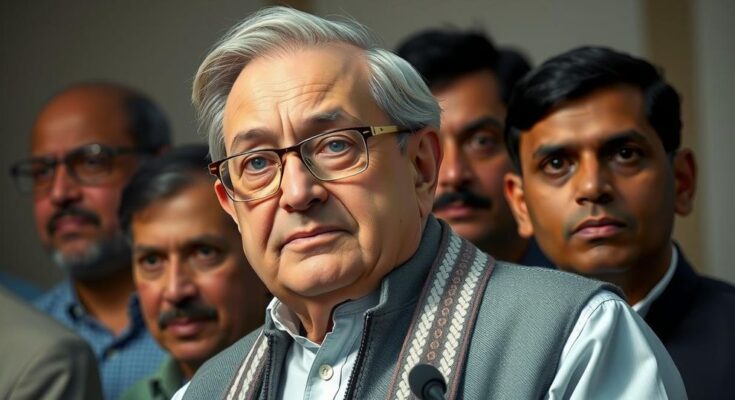Former Foreign Secretary Kanwal Sibal drew parallels between the rhetoric of India’s Opposition and U.S. billionaire George Soros’s anti-India sentiments. Amidst BJP allegations against Congress leaders for colluding with Soros to undermine India, Sibal warned of a narrative that could hurt India’s global reputation and foreign investment. The BJP’s claims have escalated political tensions, prompting a dismissal from Congress and a strong response from the U.S. embassy.
In a recent discussion regarding geopolitical tensions, former Indian Foreign Secretary Kanwal Sibal emphasized the parallels between the language used by India’s Opposition and the anti-India sentiments echoed by U.S. billionaire George Soros. Amidst allegations from the Bharatiya Janata Party (BJP) accusing senior Congress figures of colluding with Soros to undermine the nation, Sibal articulated concerns about a segment of the U.S. establishment that seems intent on harming India’s global standing and investment potential. He pointed out that this so-called deep state, which includes various agencies and think tanks, wields influence over international narratives, thereby damaging India’s democratic credentials and institutional integrity. This orchestrated campaign, he insisted, has implications for India’s attractiveness to foreign investors, although he acknowledged that such narratives might not yet translate into direct policy changes due to prevailing global economic trends. These remarks come alongside heightened scrutiny from the BJP towards Congress leader Sonia Gandhi’s affiliations with organizations supported by Soros, signaling intensified political friction within the Indian parliament. In response, Congress has dismissed these allegations as diversions, claiming the BJP is risking crucial international relationships. The developments prompted a strong rebuttal from U.S. embassy officials, who characterized the BJP’s assertions as disappointing and reaffirmed their commitment to media freedom across the globe.
The discourse surrounding George Soros and his alleged influence over Indian politics is set against a backdrop of increased scrutiny into foreign involvement in domestic affairs. Allegations that certain political factions in India collude with external entities, particularly those seen as critical of the government, have fueled concerns about national security and sovereignty. The tensions between major political parties in India, particularly between the BJP and Congress, further exacerbate these dynamics, leading to a charged political environment where accusations of foreign interference are frequently leveraged. This backdrop is crucial for understanding the significance of Sibal’s comments and the accusations exchanged in the parliament.
The remarks made by former Foreign Secretary Kanwal Sibal reflect a broader concern regarding the influence of external actors on India’s political landscape. The BJP’s ongoing allegations against the Congress party, particularly regarding connections to George Soros, underscore a significant political rift and highlight the potential ramifications for India’s foreign relations and investment climate. As these discussions unfold, it remains essential to monitor the intersection of domestic politics and international perceptions, especially in relation to India’s democratic values and economic prospects.
Original Source: www.ndtv.com




